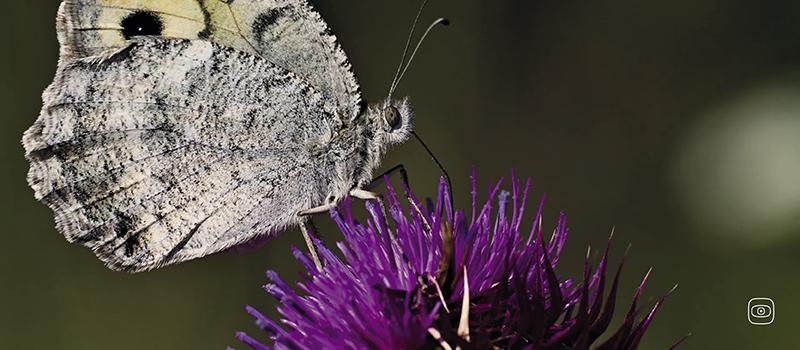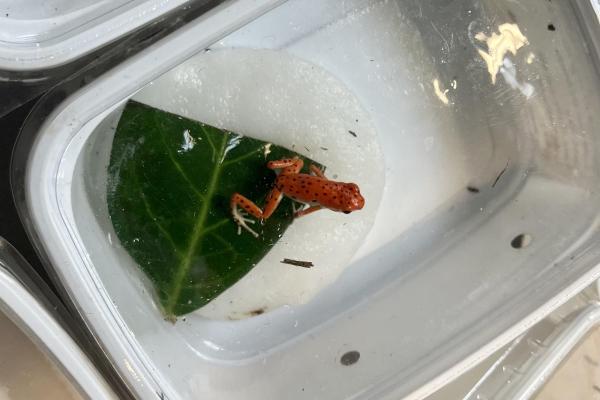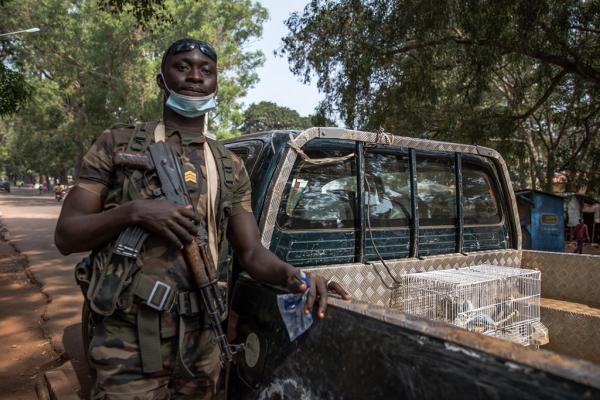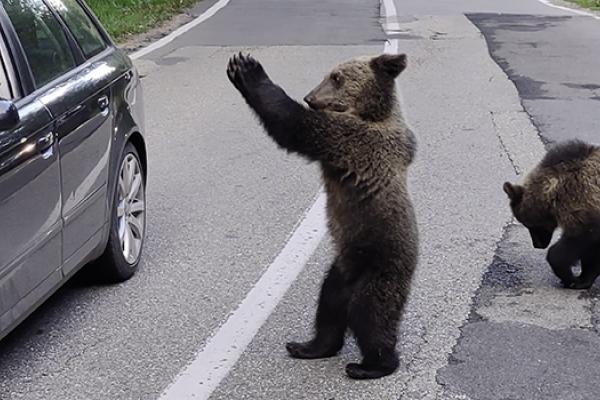Several trophies of the Macedonian Grayling — the most endangered European butterfly by the International Union for Conservation of Nature in 2009 — can be bought from various Central European online shops for a very low price (about 30 euros). The endemic species that are protected by law only in their country of origin are in a legal loophole. Once poached and smuggled, their trafficking and handling outside of their country is not a punishable act.
The investigative team ordered two packages with this butterfly to be delivered by mail, from a German and a Polish seller. To prove the illegality of the action, the journalists tested the time of their poaching and found out that the national ban on poaching and trafficking introduced in 2011 is not respected by the customs authorities, the butterfly loving poachers, or even some scientists. For example, one of the specimens they received during the investigation was poached in 2012, while the Macedonian customs have reported zero cases of illegally transferred specimens of the Grayling that year. The poaching without a license is still ongoing.
Overall conclusion: While talking a lot about climate change, the impact of the loss of biodiversity remains in the background. The case of the Macedonian Grayling, one of Europe’s most endangered butterflies, is an example of how most relevant stakeholders as well as the public fail to understand the important role the Grayling plays as a pollinator in his ecosystem.
The DW part of the investigation concentrated more the scientific and political angle from a European angle. It included a visit to an insect trade market in Munich and interviews with entomologists.
Contrary to the initial hypotheses, experts expressed the opinion that the poaching itself has no significant impact on the population of insects and butterflies, unless the habitat of the butterfly is very small. However, they very much disapprove of the illegal collection, and certainly of illegal trade in butterfly species. All entomologists who spoke to the journalists condemned poachers because of their motives to collect insects, and also because their reputation has an impact on how taxidermists are seen by society in general. They criticise the existing laws for the protection of butterflies which make it very difficult for them to work: entomologists depend on the collection and preparation of butterflies in order to specify the different species and to monitor populations within certain habitats. The bureaucratic hurdles to get extra permits to do field work, make it difficult for professionals to conduct research, but have hardly no impact on poaching activities.
Entomologists also depend on the collaboration with semi-professionals who collect species and sell them on trade markets. According to one of the experts, the sheer amount of species in the world of insects and butterflies, producing large populations, is too high for scientists to cover. So they need enthusiastic individuals with a certain expertise in order to support them in their work.
The research brought to light that the protection of insects and butterflies is not on top of the list of organisations: insects don’t make for a very charismatic protagonist when it comes to raising awareness. In comparison to bears and wild cats, for example, the level of empathy from the side of the public is really low. Therefore, the knowledge of how important insects and butterflies are within their ecosystems, both as part of the food chain, and as pollinators is alarmingly low. The wildlife NGOs see room for improvement when it comes to public outreach, but also dedicated media reports on relevant issues as well as education.
The legal situation when it comes to wildlife trade needs improvement, according to both WWF and IFAW. While WWF argues for stricter rules regarding the crime directive and more efficient on-the-ground implementation of the existing laws, IFAW suggests to adapt the American system , in which wildlife trade is illegal, if the species in the counties of origin are protected by national law.
Immediate international protection of endemic insects and amendments of European laws are needed to help preserve the Earth’s fragile biodiversity.
IMPACT
- In November 2023, the team presented the story of the Macedonian Grayling to the EU Commission, the EU Custom Service, Europol and other European agencies at the EU Action Plan Against Wildlife Trafficking Conference in Brussels (the happened yet before the findings were published, after the interview with the European Commission representatives for Policies and Campaigns during the investigation).
As a result, ProWildLife NGO expressed their willingness to save and protect the Grayling. They allocated funds and resources to support the following lobbying campaign for the species' international protection. The next legal step was placing the Macedonian Grayling on the CITES list of protected species. Intitute for Communication Studies in cooperation with ProWildLife wrote a draft and later a final version of the CITES application for the butterfly.
In the meantime ICS started a conversation about this with the Deputy Minister of foreign affairs as all international documents, declarations and conventions must be made with their support. As of May 2025, he is supporting our intention and efforts to put the threatened butterfly on the Government agenda.
The final goal is for the application to add the Macedonian Grayling to Appendix I of the Declaration to be presented at the 20th CITES Conference of the Parties in Samarkand (24/11-05/12 2025).
- The journalists are also now working on a scientific conservation paper to be published this year, in collaboration with international and national researchers.
The paper is targeted to be published in Conservation and Entomology forward international journal. The research will be a co-authored with prof. Nicolas J. Vereecken, Professor at the Chair of Agroecology at the Université Libre de Bruxelles (ULB), Belgium.
Photo by Velian Jagev











